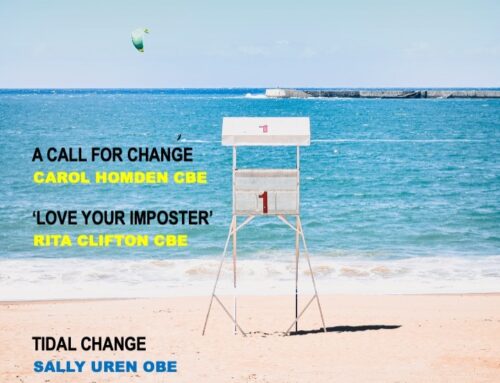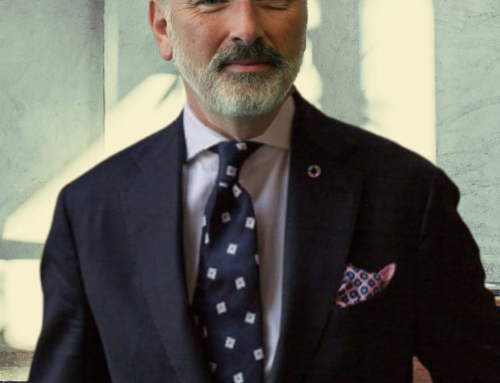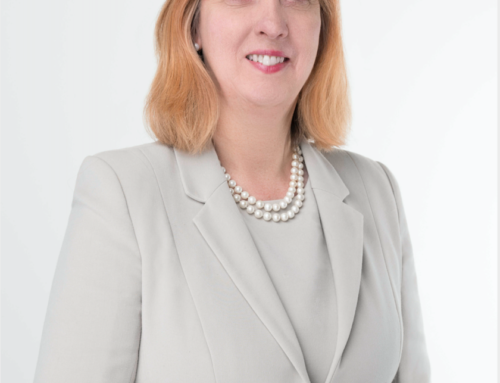When I Was Younger

When I was younger I used to walk past a beautiful woman standing at her front door every morning on my way to school. The fact that she was beautiful might sound like I am weaving a fairy-tale but it’s relevant, although I wouldn’t understand that for many decades. It wasn’t until I was a teenager that I learned that this woman was a survivor of the Holocaust.
Gena Turgel was born in Krakow, Poland in 1923 into a Jewish family. She was the youngest of nine children and was 16 when the Nazis occupied in 1939. The tanks rolled into her hometown and her youth ended in a heartbeat.
In Autumn of 1941, the family began what would be years of incarceration as they were forced to leave their home and enter the Krakow Ghetto. Because they were Jewish, they were not permitted to live among the Poles, to work or to travel. In the Ghetto the conditions were appalling – it was massively overcrowded, filthy and disease ridden, with barely enough food. The Jews lived in constant fear.
During this period, one of Gena’s brothers was shot, another escaped and was never heard from again. Later, Gena and her family were moved to the Plaszow Concentration Camp – Gena would later learn that her sister was shot in the camp as punishment for trying to bring in food for some of the starving prisoners.
Eventually, Plaszow was liquidated and Gena and her mother had to walk to the most notorious camp, Auschwitz-Birkenau. They had to leave her sister Hela behind in Plaszow – she was too weak to walk. Gena never saw her again. Auschwitz is a camp we all know the name of – it’s infamous – but few of us can imagine what it was really like to be a prisoner there. On arrival, everyone went through a ‘Selektion’ – a line of prisoners, normally arriving in cattle trucks, often after days of travelling without food, water or toilet stops, would walk
past an SS doctor who would flick his finger to the left or the right. One way meant death immediately in the gas chambers, one way meant working – a death delayed. Survivors often talk about the smell on arrival – and the chaos; some remember asking whether the chimneys were part of the kitchens before the truth about the ovens and what they were used for was revealed to them. The horrors of this camp are beyond comprehension – 1.1 million Jewish men, women and children were murdered there. When Gena arrived and went through her Selektion, she pinched her cheeks to make sure they were red and healthy, that she didn’t look pale or unwell, so they wouldn’t think she is too sick to work.
After somehow surviving the hell of Auschwitz, Gena and her mother were eventually sent to Bergen-Belsen concentration camp, described by those imprisoned there as a living nightmare. On 15th April 1945 Bergen Belsen was liberated by British forces. They were met with rampant typhus and walking skeletons, many dying where they lay. Among the liberators was Norman Turgel who would become Gena’s husband. Their wedding was officiated by the army chaplain and Gena’s wedding dress made out of an army parachute. Gena and her mother settled in the UK, and Gena and Norman went on to have children, grandchildren and great-grandchildren. She passed away three years ago this month and still leaves a hole for all of us who knew her.
As the Chief Executive of the Holocaust Educational Trust, I have the enormous privilege to get to know a number of Holocaust survivors, many of whom have become more like family. Gena was one who fell into that category – we would talk ahead of Jewish festivals, she would call me with news of grandchildren and great-grandchildren, always brimming with pride; and when I visited, she would always feed me – whether I was hungry or not! After Gena died, I wrote that my enduring memory of her was that she made me smile – a strange thing to say about a woman who had experienced what she had.
Until the end of her life, Gena always looked immaculate. Because being beautiful to her meant looking healthy. And looking healthy kept you alive. The legacy of what had been done to her and her family never left her. She never for a second forgot what happened when antisemitism reached its pinnacle. Gena, like survivors across the world, was determined that what she lived through should never be forgotten. For her sake, for the sake of her family who were murdered, for the six million Jews, for the sake of her community which was destroyed and, just as importantly, for our sake.
Today, the Holocaust is still part of living memory. We still have survivors among us who live with the legacy of their horrors. And yet, even in a world where we have these witnesses, we see daily an onslaught of antisemitism, Holocaust denial and the denigration of the past.
At the tap of a button you can access survivor testimony, but with the same button you can access the words of those who claim that the Holocaust never happened, that it was all a big hoax. You can see the speeches of those on the fringes who claim that the figure of 6 million is a lie – that accept that the Jews were treated badly and that some lost their lives, but claim that figure to be in the tens of thousands. You can access the vitriol spewed by those who say that it is time to ‘finish Hitler’s job’.
But even more frightening, more insidious, is the antisemitism that seeps into the mainstream, that changes everyday narratives and becomes normalised. We’ve seen an unprecedented level in the past few weeks alone. We have seen people marching through London and across the world, openly saying that they are looking for Jews to harm. There have been calls for Jews to be raped and murdered. Holocaust survivors have been abused on social media by people saying that Hitler was right. A Rabbi was attacked outside of his synagogue. There has been a wave of antisemitism reported on university campuses. At a recent rally in central London protesters held placards reading ‘Stop doing what Hitler did to you’, ‘Holocaust part 2’, and comparing Israel to Hitler. I often wonder what Gena would think. She would be horrified and disgusted.
We are in an era of change – the Holocaust is moving into history. Only those who survived the Holocaust as children are still able to share their testimonies. The mantle must pass to us, those who know the truth of the Holocaust and are prepared to defend that truth. I am a witness to Gena’s story. For her, and for so many others, we at the Holocaust Educational Trust will carry on our work to ensure that everyone, everywhere knows what happened when prejudice and hatred were left unchecked less than a century ago.
Karen Pollock CBE
Chief Executive
The Holocaust Educational Trust www.het.org.uk
@HolocaustUK


When I Was Younger

When I was younger I used to walk past a beautiful woman standing at her front door every morning on my way to school. The fact that she was beautiful might sound like I am weaving a fairy-tale but it’s relevant, although I wouldn’t understand that for many decades. It wasn’t until I was a teenager that I learned that this woman was a survivor of the Holocaust.
Gena Turgel was born in Krakow, Poland in 1923 into a Jewish family. She was the youngest of nine children and was 16 when the Nazis occupied in 1939. The tanks rolled into her hometown and her youth ended in a heartbeat.
In Autumn of 1941, the family began what would be years of incarceration as they were forced to leave their home and enter the Krakow Ghetto. Because they were Jewish, they were not permitted to live among the Poles, to work or to travel. In the Ghetto the conditions were appalling – it was massively overcrowded, filthy and disease ridden, with barely enough food. The Jews lived in constant fear.
During this period, one of Gena’s brothers was shot, another escaped and was never heard from again. Later, Gena and her family were moved to the Plaszow Concentration Camp – Gena would later learn that her sister was shot in the camp as punishment for trying to bring in food for some of the starving prisoners.
Eventually, Plaszow was liquidated and Gena and her mother had to walk to the most notorious camp, Auschwitz-Birkenau. They had to leave her sister Hela behind in Plaszow – she was too weak to walk. Gena never saw her again. Auschwitz is a camp we all know the name of – it’s infamous – but few of us can imagine what it was really like to be a prisoner there. On arrival, everyone went through a ‘Selektion’ – a line of prisoners, normally arriving in cattle trucks, often after days of travelling without food, water or toilet stops, would walk
past an SS doctor who would flick his finger to the left or the right. One way meant death immediately in the gas chambers, one way meant working – a death delayed. Survivors often talk about the smell on arrival – and the chaos; some remember asking whether the chimneys were part of the kitchens before the truth about the ovens and what they were used for was revealed to them. The horrors of this camp are beyond comprehension – 1.1 million Jewish men, women and children were murdered there. When Gena arrived and went through her Selektion, she pinched her cheeks to make sure they were red and healthy, that she didn’t look pale or unwell, so they wouldn’t think she is too sick to work.
After somehow surviving the hell of Auschwitz, Gena and her mother were eventually sent to Bergen-Belsen concentration camp, described by those imprisoned there as a living nightmare. On 15th April 1945 Bergen Belsen was liberated by British forces. They were met with rampant typhus and walking skeletons, many dying where they lay. Among the liberators was Norman Turgel who would become Gena’s husband. Their wedding was officiated by the army chaplain and Gena’s wedding dress made out of an army parachute. Gena and her mother settled in the UK, and Gena and Norman went on to have children, grandchildren and great-grandchildren. She passed away three years ago this month and still leaves a hole for all of us who knew her.
As the Chief Executive of the Holocaust Educational Trust, I have the enormous privilege to get to know a number of Holocaust survivors, many of whom have become more like family. Gena was one who fell into that category – we would talk ahead of Jewish festivals, she would call me with news of grandchildren and great-grandchildren, always brimming with pride; and when I visited, she would always feed me – whether I was hungry or not! After Gena died, I wrote that my enduring memory of her was that she made me smile – a strange thing to say about a woman who had experienced what she had.
Until the end of her life, Gena always looked immaculate. Because being beautiful to her meant looking healthy. And looking healthy kept you alive. The legacy of what had been done to her and her family never left her. She never for a second forgot what happened when antisemitism reached its pinnacle. Gena, like survivors across the world, was determined that what she lived through should never be forgotten. For her sake, for the sake of her family who were murdered, for the six million Jews, for the sake of her community which was destroyed and, just as importantly, for our sake.
Today, the Holocaust is still part of living memory. We still have survivors among us who live with the legacy of their horrors. And yet, even in a world where we have these witnesses, we see daily an onslaught of antisemitism, Holocaust denial and the denigration of the past.
At the tap of a button you can access survivor testimony, but with the same button you can access the words of those who claim that the Holocaust never happened, that it was all a big hoax. You can see the speeches of those on the fringes who claim that the figure of 6 million is a lie – that accept that the Jews were treated badly and that some lost their lives, but claim that figure to be in the tens of thousands. You can access the vitriol spewed by those who say that it is time to ‘finish Hitler’s job’.
But even more frightening, more insidious, is the antisemitism that seeps into the mainstream, that changes everyday narratives and becomes normalised. We’ve seen an unprecedented level in the past few weeks alone. We have seen people marching through London and across the world, openly saying that they are looking for Jews to harm. There have been calls for Jews to be raped and murdered. Holocaust survivors have been abused on social media by people saying that Hitler was right. A Rabbi was attacked outside of his synagogue. There has been a wave of antisemitism reported on university campuses. At a recent rally in central London protesters held placards reading ‘Stop doing what Hitler did to you’, ‘Holocaust part 2’, and comparing Israel to Hitler. I often wonder what Gena would think. She would be horrified and disgusted.
We are in an era of change – the Holocaust is moving into history. Only those who survived the Holocaust as children are still able to share their testimonies. The mantle must pass to us, those who know the truth of the Holocaust and are prepared to defend that truth. I am a witness to Gena’s story. For her, and for so many others, we at the Holocaust Educational Trust will carry on our work to ensure that everyone, everywhere knows what happened when prejudice and hatred were left unchecked less than a century ago.
Karen Pollock CBE
Chief Executive
The Holocaust Educational Trust www.het.org.uk
@HolocaustUK





